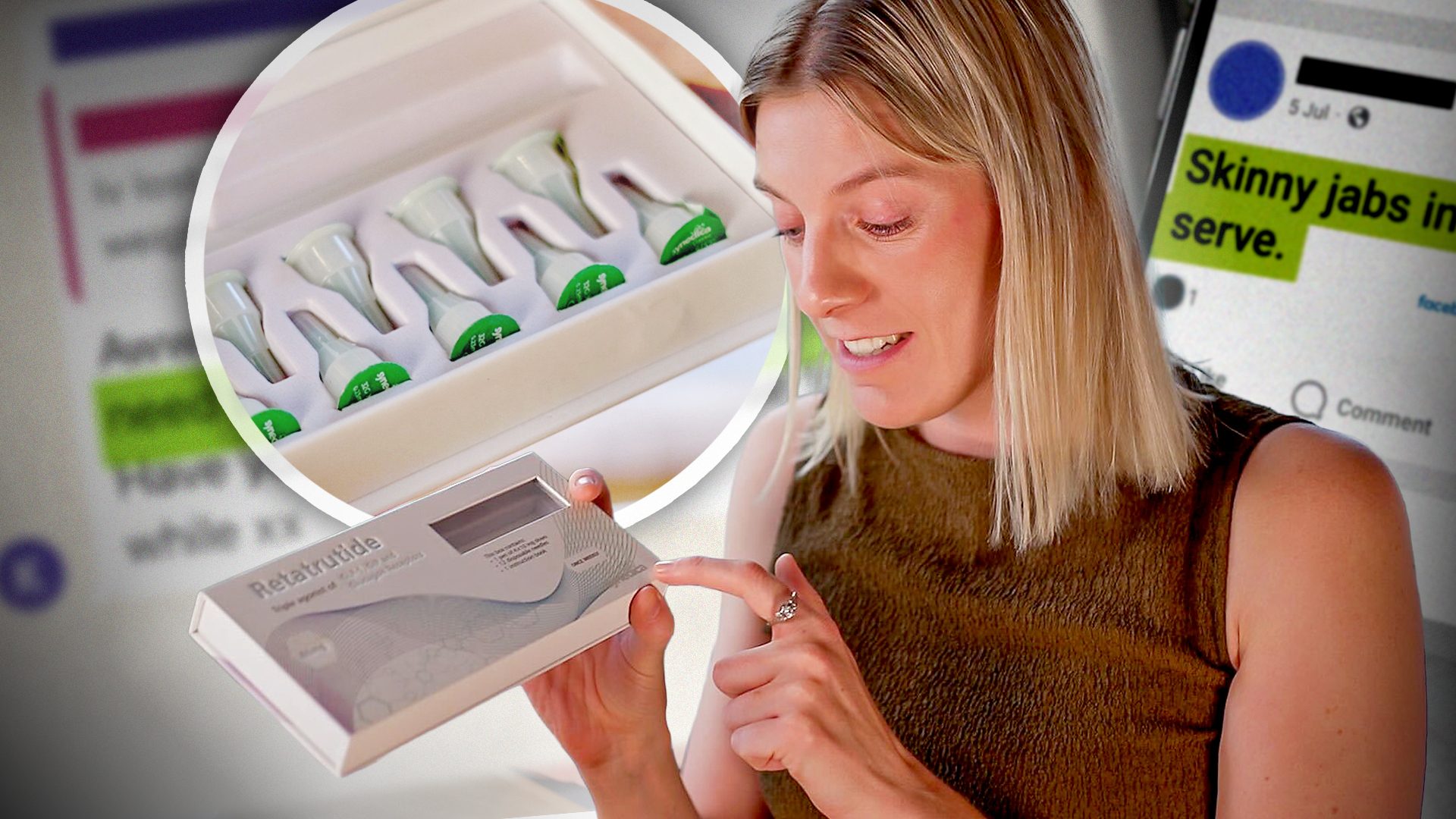Science
Black Market for Fake Weight Loss Injections Exposed Online

A recent investigation by Channel 4 News has unveiled a troubling trend in the weight loss market, where counterfeit injections are being sold on social media. This black market for potentially lethal weight loss jabs has emerged amid soaring consumer demand for effective weight loss solutions. The investigation reveals that these fake products, including a counterfeit of the still-under-development drug known as retatrutide, are being sold online and injected without any medical oversight, putting buyers’ health at serious risk.
Undercover reporter Sophie Braybrook detailed her experience purchasing a fake weight loss injection through social media platforms. After connecting with sellers on Facebook and Instagram, she was added to a WhatsApp group with over 20 other buyers. Following a £200 transfer, she met the seller at a location in northern England. Conflicting advice on how to use the product highlighted the lack of regulation in this illicit market. While one seller recommended injecting the product twice a week, another suggested a once-weekly regimen, raising questions about the safety and efficacy of the injections.
The counterfeit product was falsely marketed as retatrutide, which is currently under development by Eli Lilly and has not been approved for human use. This means that any sale of the actual drug, or its fakes, is illegal. Upon receiving the package, Braybrook found it appeared legitimate, complete with a dosage pen and needles, but the accompanying instructions cautioned against use without medical training.
Dr. Luke Turnock, a criminology lecturer at the University of Lincoln, provided insights into the origins of these counterfeit products. He noted that illicit weight loss drugs often originate from countries like China, India, and Russia, where they can be produced for as little as £1.50 in bulk. NHS GP Nancy Allen, who prescribes licensed weight loss medications, expressed concern upon viewing the counterfeit product, stating, “This raises serious concerns about patient safety.”
Despite the evident dangers, the allure of rapid weight loss continues to entice consumers. Braybrook’s investigation revealed that the sellers she contacted had already serviced around 60 buyers. Champion bodybuilder Richie O’Donnell noted that many individuals, including teenagers, are using these injections. He warned that the desire for quick results could lead individuals to make dangerously uninformed choices.
The investigation also highlighted testimonies from individuals who have experienced severe side effects from similar counterfeit products. Former Big Brother star Aisleyne Horgan-Wallace described a harrowing experience after using a different weight loss drug. She recounted, “There were bags of vomit just lined up by my bed. I couldn’t make it to the toilet. It was the worst time of my life physically.”
In response to the investigation, Dr. Beccy Cooper, a Labour MP and member of the Health and Social Care Committee, expressed her alarm at the ease with which fake injections can be obtained. She called the situation “appalling” and highlighted the challenges faced by the Medical Health and Regulatory Authority (MHRA) in combatting unregulated medication sales on social media. “This is very hard because it’s everywhere,” she remarked.
The MHRA confirmed that any product claiming to be retatrutide is illegal and unsafe, emphasizing that legitimate weight loss medications are only available through prescription. Representatives from both TikTok and Meta (the parent company of Facebook, Instagram, and WhatsApp) stated that they have removed content related to these counterfeit products. TikTok announced that it has banned hashtags and searches related to retatrutide to curb the spread of misinformation.
Eli Lilly also responded, stating, “Any product falsely representing itself as a Lilly investigational product not yet approved by the FDA may expose patients to potentially serious health risks.” The company collaborates with regulators and law enforcement to identify and eliminate fraudulent or unsafe content online.
The investigation reached out to the companies selling these fake jabs, Synedica and Alluvi, but received no response. Synedica claims its products are for research purposes only, yet they are clearly marketed to consumers, which is illegal outside of clinical trials. Following the investigation, Eli Lilly announced it would take action against both companies.
The findings underscore a growing concern about the safety and regulation of weight loss products in the digital age. As the market for weight loss solutions expands, the potential for harm through unregulated and counterfeit products becomes increasingly alarming.
-

 Entertainment1 month ago
Entertainment1 month agoAnn Ming Reflects on ITV’s ‘I Fought the Law’ Drama
-

 Entertainment3 months ago
Entertainment3 months agoKate Garraway Sells £2 Million Home Amid Financial Struggles
-

 Entertainment1 month ago
Entertainment1 month agoCoronation Street’s Carl Webster Faces Trouble with New Affairs
-

 Health1 month ago
Health1 month agoKatie Price Faces New Health Concerns After Cancer Symptoms Resurface
-

 Entertainment1 month ago
Entertainment1 month agoWhere is Tinder Swindler Simon Leviev? Latest Updates Revealed
-

 Entertainment2 months ago
Entertainment2 months agoKim Cattrall Posts Cryptic Message After HBO’s Sequel Cancellation
-

 Entertainment2 months ago
Entertainment2 months agoMasterChef Faces Turmoil as Tom Kerridge Withdraws from Hosting Role
-

 Entertainment3 months ago
Entertainment3 months agoSpeculation Surrounds Home and Away as Cast Departures Mount
-

 World1 month ago
World1 month agoCole Palmer’s Mysterious Message to Kobbie Mainoo Sparks Speculation
-

 Entertainment1 month ago
Entertainment1 month agoITV’s I Fought the Law: Unraveling the True Story Behind the Drama
-

 Entertainment4 weeks ago
Entertainment4 weeks agoCaz Crowned Winner of The Great British Sewing Bee, Overjoyed by Triumph
-

 Entertainment2 months ago
Entertainment2 months agoMarkiplier Addresses AI Controversy During Livestream Response



















